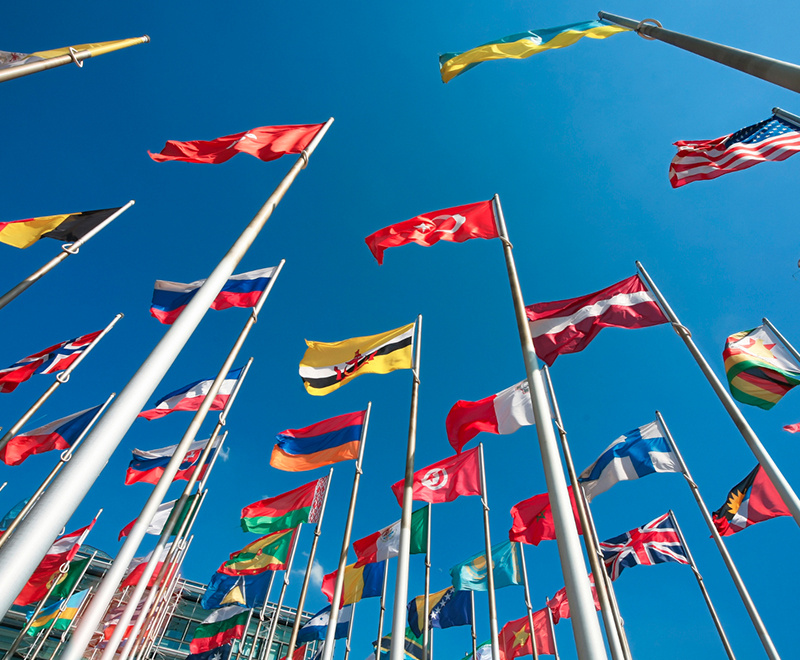Cordelia Hay and Ben Shimshon from Britain Thinks look at the lessons for the polling industry from both the Brexit vote and Donald Trump’s election victory.
Another election surprise, another round of “what went wrong with the polls?”. Clearly there were methodological issues for pollsters ahead of both the US Election and the Brexit vote. However, for communicators, a focus on the methodologies is to miss a much bigger question facing our practitioners and our industry: Why were the huge social and attitudinal cleavages that seem so clear immediately after the vote, not noticed or given due credence in the months and years before?
In both votes, the divergence between what the polls seemed to be saying and the actual outcome was often as much a result of erroneous interpretation as of methodological failure. In the case of Brexit, whilst almost all the telephone polls said Remain would win, the online polls had it too close to call and many had Leave in the lead. What went wrong was a wilful (and hopeful) decision amongst the Remain-leaning establishment to believe the telephone and reject the online. In the US, the national polls consistently overestimated Clinton’s lead at the national level (although that lead will be substantial), but there was also a determination to focus on the national polls rather than the state-level, where things always looked more touch and go.
For campaigners and communicators, the fact that we were surprised by these results is as much about our tone-deafness to what in retrospect comes screaming out of the qualitative data, as it is about any sense in which we were misled by the polls themselves. Had we listened more closely, we’d have heard three big things:
- ‘Your’ issues aren’t necessarily ‘their’ issues
In the EU Referendum, ‘Remain’ focused on the logical, rational macroeconomic arguments of the importance of trading links to Britain’s economy and international standing. For Londoners, these messages could to some extent be related to symbols of prosperity, international exchange, and growth, but north of Watford, voters in focus groups were nonplussed when we asked them about trade. “We don’t make anything anymore in Britain, what do we trade?”
In the US we saw the Democrats – and the establishment – fall into a similar trap. Their response to claims about the now President Elect’s treatment of women was framed almost entirely from their own, often feminist, perspective. For a vast proportion of the electorate, including many white, female voters (over half of whom voted for Trump), that framing made sharing in the outrage at Trump’s words feel like an endorsement of a set of ‘metropolitan’ values which they definitely didn’t share. The opportunity to be outraged because Trump had violated their own values of religion, family, tradition, even ‘gentlemanliness’, was lost.
- Feeling ‘left behind’ isn’t just a passing state of mind – it’s become the new political battleground
Analysis of long-term trends suggests that some of the factors contributing to dissatisfaction with politics and the status quo date back at least a decade.
Based on a series of ethnographic interviews in rural America, Kathy Cramer has taken this a step further by arguing that feeling ‘left behind’ is not just a symptom of long-simmering socioeconomic divides, but is increasingly a form of identity. These groups don’t just feel alienated from elites and cities; they shape their identity in opposition to them. The sense that “I’m not getting my fair share of power, stuff or respect” leads to a wholesale rejection of ‘city’ ways, values and behaviours.
At BritainThinks, our own work on people who self-identify as “Working Class” revealed just how deeply the association between physical labour and dignity still runs for many communities in the UK. And how frustrated that identity is (particularly for men) by the reality of the world of low-level service, call centre and logistics work. Raising the minimum wage, putting workers on boards, or protecting tax credits, are unlikely to address such a deep seated loss of a key source of personal and social value.
- There isn’t one ‘public’, but multiple, fragmented publics
In Britain there is a growing divide not just between the countryside and cities, but smaller towns versus bigger towns, and suburbs versus inner city centres. Communities feel more and more different to, and isolated from, one another, and find it increasingly difficult to piece together a national picture of what Britain is and what it’s about.
At BritainThinks, we often stress the importance of “starting where people are, not where you wish they were”. In some ways, the inaccuracy of the predictive polling in each case has afforded many in our world a wakeup call. Had the polls been right (i.e. if Clinton had won and the UK Remained), campaigners and communicators might well have continued looking at the world through our own, self-confirming, lenses, thinking that everything was as we believed (or wished) it to be. But, even if the polls had been right, we’d still have been wrong.



